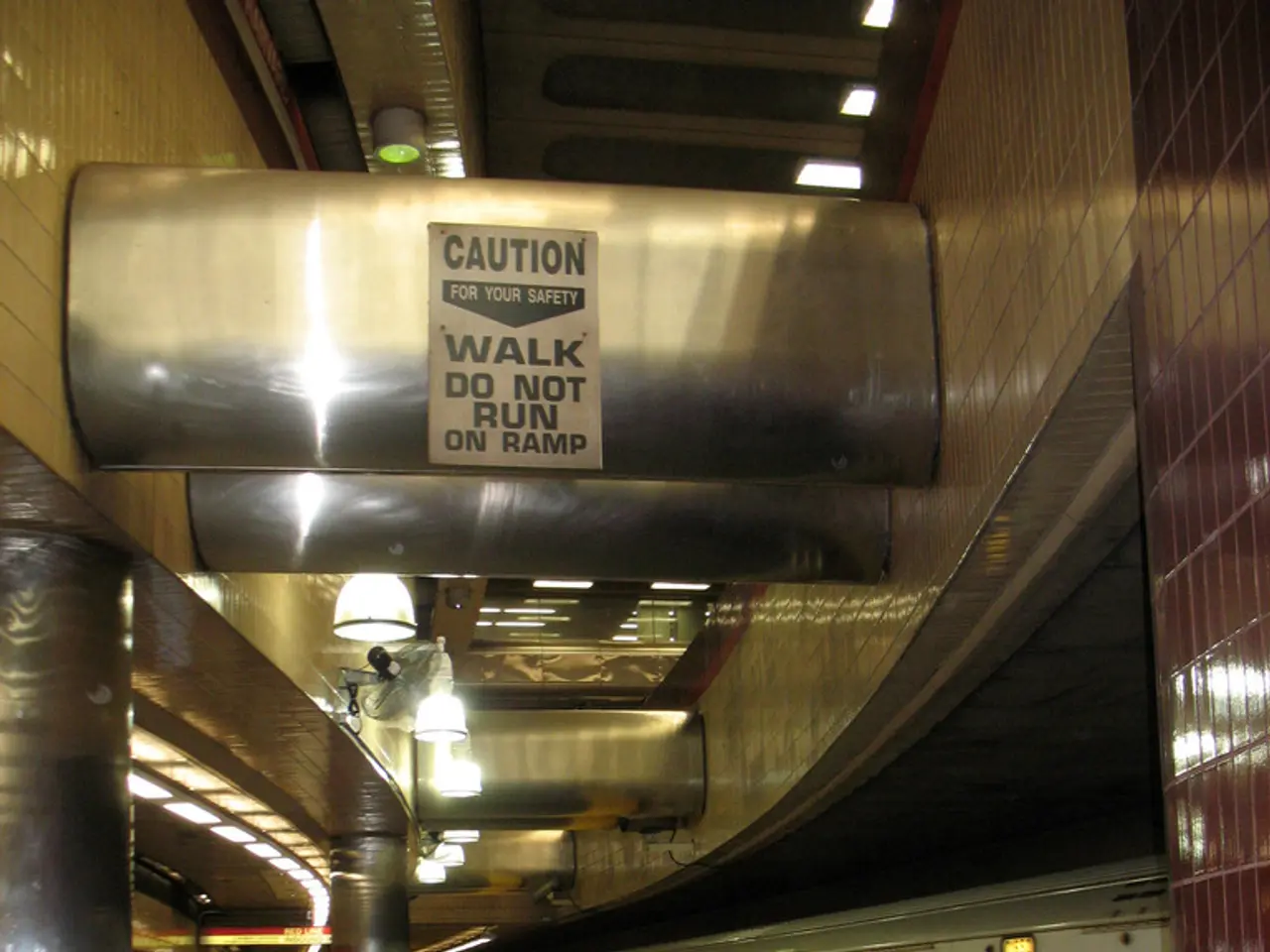Increase in Berlin's public transportation costs: the reasons behind the hike
Let's Talk Ticket Prices: Get Ready to Pay More for Berlinality!
Here in the pulse-racing city of Berlin, getting around is about to become a little more pricey. The local transit pass, which debuted just a few months ago, is being tossed aside like a half-empty beer stein on the floor of a legendary club. Instead, single-use tickets, already priced at €3.50, will inflate by approximately 7.5%. So, are you ready to pay €3.80 for that late-night ride on the Ringbahn or that sobering trip on the U8?
But this trend is not exclusive to Berlin. The nationwide Deutschlandticket, which currently costs €58 per month, is also receiving a not-so-warm welcome from the piggy bank. Albeit less expensive than the old BVG monthly pass for Berlin (€86 in 2022), it's not as affordable anymore. Now, the cheapest monthly AB pass will set you back €76.70, making it a tad more costly than the Deutschlandticket.
So, why are we paying more for a service that's trying to squeeze every penny? Well, politics, dear readers. Money is tight, and politicians want to balance the budget by trimming subsidies for public-transport riders. Berlin's €29 ticket, touted as a game-changer during local elections, has neither been a money-spinner nor a rider magnet, leading to its premature demise.
The increased fares are generating a political stir. Economy senator Franziska Giffey, who championed the €29 ticket, is finding herself under scrutiny. Simultaneously, transportation funding is taking the biggest hit in Mayor Kai Wegner's austerity program. The Senate, not the BVG, calls the shots when it comes to fares. And for political reasons, they'd rather hike tickets than taxes.
While the Deutschlandticket faced skepticism from other regions when introduced, its success was remarkable: an estimated 15 million people are currently on board, boosting rail travel by over 30% and reducing car kilometers driven by 7.6%. However, the increased ride count hasn't quite covered the losses in revenue for local transport operators.
The ongoing popularity of the Deutschlandticket indicates a demand for convenient, affordable travel options. Yet, the recent fare hike might put a damper on this demand. Recent findings suggest that most people consider €55 per month an affordable limit, while €75 is too steep. Horst Vöge, president of the VdK social advocacy group, calls the Deutschladticket's cost bump a "step in the wrong direction".
The underlying issue that needs addressing is Germany's creaky transportation infrastructure. A surge in ridership can only be effective with investment in upgrades, increased frequency, and enhancing the reliability of services like the chronically late Deutsche Bahn. Berlin could have better invested the €300 million earmarked for the €29 ticket by improving the BVG's infrastructure instead of tempting riders with a discounted price.
Affordable travel options are crucial for climate goals, easing congestion, and ensuring everyone can navigate the city. However, with budget cuts looming and operational costs rising, we're bracing ourselves for a challenging ride. Germany needs to not just rebuild transportation networks but entice travelers by making tickets that won't break the bank. But in these days of belt-tightening and tough choices, hope for an easy transition may be as elusive as that perfect U-Bahn connection.
In the context of increasing transportation costs, it appears that sports enthusiasts might find themselves paying more for commuting to their favorite stadiums or gyms, given the trend of higher ticket prices for public transportation. With the hike in fares for single-use tickets in Berlin and the increase in the Deutschladticket's cost, it seems leisure activities and athletic pursuits may become more expensive due to the financial difficulties faced by transportation authorities.
Moreover, as maintenance and improvement of Germany's transportation infrastructure is vital for encouraging climate-friendly travel and reducing congestion, it is crucial for policymakers to find feasible solutions to fund these efforts without straining travelers' budgets. This could potentially impact the affordability of sports-related events and activities for the average citizen.








